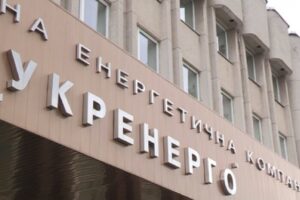
To prepare thermal power generation for summer consumption peaks and the next heating season, DTEK Energy miners have put seven new coal longwall faces into operation since the beginning of 2025, two of them in May, according to a press release from the operating holding company.
“In summer and during heating seasons, the load on thermal power generation traditionally increases, so we maintain the appropriate pace of work. Fuel production for thermal power generation requires detailed planning and consistency at every stage. This includes the launch of new coal longwall faces,” said DTEK Energy CEO Alexander Fomenko.
Last year, the company invested about 7.5 billion hryvnia in Ukrainian coal mining, with a total of 18 billion hryvnia planned for 2022-2024.
According to DTEK Energy, the funds were used to carry out and repair capital mining works, complete coal longwall systems, equip mines with tunneling equipment, underground mine transport, and projects to support production capacities.
DTEK Energy provides a closed cycle of coal-based electricity production. The company’s installed thermal generation capacity as of January 2022 was 13.3 GW. A complete production cycle has been established in coal mining: coal extraction and enrichment, machine building, and maintenance of mining equipment.

The rye deficit in the 2025/2026 season will be 100%, which will inevitably lead to an increase in the price of rye bread, said Rodion Rybchinsky, director of the Ukrainian Flour Millers Association, in an interview with Interfax-Ukraine.
“We can say with certainty that there will be a 100% rye shortage in the 2025/26 season. Already, Polish rye is being partially processed in Ukraine, and bakers are using Baltic rye flour. Unfortunately, this is our reality,” he said.
According to the head of the industry association, the reason for the rye shortage is the unwillingness of agricultural producers to sow the crop, as its yield is one-third lower than that of wheat—40 centners per hectare versus 60 centners per hectare, respectively.
In addition, the entire deficit was previously covered by Belarus, which led to a reduction in rye production in Ukraine—it was difficult for farmers to compete with supplies from Belarus. At the same time, rye is not a popular export crop. Demand for rye is only on the domestic market.
Rybchynsky pointed out that the current price of rye is more than competitive: while in 2024, 1 ton of rye cost 6-7 thousand hryvnia, as of May 2025, it costs 12-14 thousand hryvnia.
When asked whether the rye shortage would lead to higher prices for rye bread, the expert emphasized that prices would definitely rise.
“Currently, the price of Ukrainian rye flour is 18,000 hryvnia per ton, and imported raw materials cost about 20,000 hryvnia, while last May, rye flour cost 10,000 hryvnia. It will not just be a rise in the price of rye bread—many bakery producers will simply stop baking it,” he stressed.
The head of the Ukrainian Millers Association predicts that Ukraine will experience a rye deficit in the 2025/2026 marketing year and will have to purchase it on foreign markets at European prices. This will make rye attractive to Ukrainian farmers. Therefore, in the 2026/2027 marketing year, agricultural producers will most likely increase the area under rye, which could stabilize the market situation.

Passenger traffic across the Ukrainian border during the week from May 31 to June 6, with the onset of summer, the end of the school year, and the start of the vacation season, increased by 13.2% to 573,000, according to data from the State Border Service on Facebook.
According to the data, the outbound flow jumped from 253,000 to 311,000, while the inbound flow increased from 253,000 to 262,000.
The number of vehicles that passed through checkpoints this week did not increase significantly, from 124,000 to 125,000, and the flow of vehicles carrying humanitarian cargo even decreased slightly, from 524 to 514.
According to the agency, at noon on Sunday, there was only one queue of passenger cars at the Ustyluh checkpoint on the Polish border, with 30 vehicles, while four buses were waiting to cross the border at Shehyni.
At all other checkpoints, there were queues of 15 and 10 vehicles at the Vylok and Luzhanka checkpoints on the border with Hungary and 10 vehicles at the Uzhgorod and Maly Berezny checkpoints on the border with Slovakia.
The total number of people crossing the border this year is higher than last year: during the same seven days last year, 291,000 people left Ukraine and 251,000 entered, and the flow of cars was also lower – 118,000.
Last year, a significant summer increase in passenger traffic began in the first week of June and lasted for five weeks in a row.
As reported, from May 10, 2022, the outflow of refugees from Ukraine, which began with the start of the war, was replaced by an influx that lasted until September 23, 2022, and amounted to 409,000 people. However, since the end of September, possibly influenced by news of mobilization in Russia and “pseudo-referendums” in the occupied territories, followed by massive shelling of energy infrastructure, the number of departures exceeded the number of arrivals. In total, from the end of September 2022 to the first anniversary of the full-scale war, it reached 223,000 people.
During the second year of the full-scale war, the number of border crossings to leave Ukraine, according to the State Border Service, exceeded the number of crossings to enter by 25,000, during the third year by 187,000, and since the beginning of the fourth year by 79,000.
As Deputy Minister of Economy Serhiy Sobolev noted in early March 2023, the return of every 100,000 Ukrainians home results in a 0.5% increase in GDP.
In its April inflation report, the National Bank again estimated the outflow from Ukraine in 2024 at 0.5 million (according to the State Border Service – 0.315 million). In absolute terms, this means an increase in the number of migrants remaining abroad in 2024 to 6.8 million. The NBU also maintained its forecast for outflow in 2025 at 0.2 million.
According to updated UNHCR data, the number of Ukrainian refugees in Europe as of April 17, 2025, was estimated at 6.358 million, and worldwide at 6.918 million, which is 15,000 fewer than on March 20.
In Ukraine itself, according to the latest UN data at the end of last year, there were 3.669 million internally displaced persons (IDPs).

Changes made by the Ministry of Energy to the charter of NEC Ukrenergo with a provision on a qualified majority of votes for the appointment of the chairman of the board, has provoked a sharp reaction from the company’s creditor, the European Bank for Reconstruction and Development, threatening the loss of access to a €141 million loan and grant, as well as early repayment of the €533 million already received, according to Maksym Khlapuk, a member of the Verkhovna Rada’s energy committee (Holos).
“The Ministry of Energy has pushed Ukrenergo into a real, not technical, default. The amendments to the company’s charter, which the Ministry of Energy introduced to strengthen its influence over it, have already hit the financial stability of the critical energy infrastructure operator. Yesterday, the EBRD, referring to the Ministry of Energy’s order on amendments to the charter, emphasized its right to suspend the disbursement of loan funds and demand early repayment of the loan already provided,” Khlapuk wrote on his Facebook page on Saturday, publishing an excerpt from the EBRD’s letter to Ukrenergo and the Ministry of Finance of Ukraine dated June 6.
It points to the company’s failure to notify the bank in a timely manner of any changes to the charter and to provide an opportunity to comment on them.
Referring to the terms of the loan agreements, the bank emphasizes its right to suspend disbursements and send appropriate notices of early repayment of loans in connection with changes to the charter.
“This situation threatens Ukrenergo not only with the loss of access to further EBRD financing in the amount of EUR 141 million (EUR 77 million of unutilized loan balance and EUR 64 million of expected grant), but also with the need for early repayment of funds already received in the amount of EUR 533 million,” emphasized a member of the Rada’s energy committee.
He also notes that the restructuring of Ukrenergo’s debt obligations to holders of green sustainable development bonds, for which the company planned to raise $430 million on international capital markets under the DFC guarantee, is now under threat.
“This debt management operation should have been completed in early July, but its success directly depends on the support of international financial institutions. And, according to my information, the DFC has currently suspended any actions related to the restructuring of green bonds,” Khlapuk emphasized.
As reported, on May 19, the Ministry of Energy amended the charters of LLC “OGTSU” and “Ukrenergo” with a provision on a qualified majority of votes of the Supervisory Board for the appointment of managers instead of a simple majority. This means that four out of five members of the supervisory board (three of whom are independent) must vote for the head of OGTSU, and five out of seven (four of whom are independent) must vote for the head of Ukrenergo.
As commented to EnergoReform by the head of the Association for Energy Efficiency and Energy Saving, former head of the Department for State-Owned Enterprises and Corporate Rights of the State Property Fund of Ukraine, Oleksandr Vizir, the Ministry of Energy, as a shareholder of Ukrenergo had the right to amend the company’s charter, and the provision on a qualified majority of votes is completely legal from a legal point of view. However, he drew attention to the way in which this was done. “For example, as far as I know, the amendments to the charter were not agreed with the supervisory board of Ukrenergo, nor with the company’s creditors, which is a condition of loan agreements in most cases,” Vizir explained in a comment. Vizir expressed his conviction that this would also delay the appointment of the chairman of Ukrenergo’s board, which should have taken place long ago, since the members of the supervisory board – representatives of the state and the Ministry of Energy, as the appointing body – can now effectively block the candidacy of independent representatives.
“According to my information, the independent members of the supervisory board and the shareholder have very different views on who should head Ukrenergo. And in fact, changes to the charter regarding the voting structure for appointing the head in the midst of the competition give grounds for concluding that the shareholder cannot agree with the candidates selected by the supervisory board,” Vizir believes.
In his opinion, the Ministry of Energy also had no right to submit the charter for registration or authorize anyone to do so; the charter should have been registered by the head of the company, Oleksiy Brecht, as acting chairman of the board, or by a person with a power of attorney from Ukrenergo.
According to Energorforma, the supervisory board of Ukrenergo was scheduled to meet on June 4, but was unable to elect a chairman of the board.
EnergoReforma’s interlocutors familiar with the situation also pointed out that the Ministry of Energy did not consult with the Energy Community Secretariat on changes to the statutes of Ukrenergo and OGTSU certified by it, which also caused its negative reaction. They noted that the issue of changes to the statutes of the operators is already known to European institutions and creditors, who have asked the Ministry of Energy for explanations, and assumed that a position will be expressed soon. In their opinion, the Ministry of Energy needs to communicate this issue very carefully with all stakeholders and provide very convincing arguments “or abandon the proposed changes in order to save the situation.”
For his part, Ukrainian Energy Minister Herman Galushchenko, during Question Time in the Verkhovna Rada on June 6, explained that the purpose of the changes to the statutes of OGTSU and Ukrenergo was to strengthen the position of company executives vis-à-vis the NR.
“I believe that these changes are actually aimed at something else: to ensure the maximum independence of the supervisory board and to ensure that the relevant managers and members of the management boards can work in order to protect them from dismissal or other decisions by a majority vote,” he said.
The new supervisory board of Ukrenergo, formed at the end of 2024, includes Yuriy Boyko, Anatoliy Guley, and Oleksiy Nikitin as representatives of the state, as well as independent members Patrick Greichen, Luigi De Francisci, Jan Montell, and Eppe Kofod, who heads the NR.
NR Ukrenergo announced a competition for the position of chairman of the board on February 5, 2025, with applications accepted until March 14 inclusive.
A shortlist of three candidates for the position of chairman of the board was formed in mid-April. It included the acting head of the company, Oleksiy Brecht, its chief dispatcher and member of the board, Vitaliy Zaychenko, and another representative of the company, Ivan Yurik, who deals with Eurobond issues.
In connection with the submission by OGTSU CEO Dmitry Lippa of a statement on the early termination of his powers, the company will be temporarily headed by a member of the management board, operations director Vladislav Medvedev, until the completion of the competitive selection process. The deadline for accepting applications from candidates for the position of the next head of OGTSU was March 31.